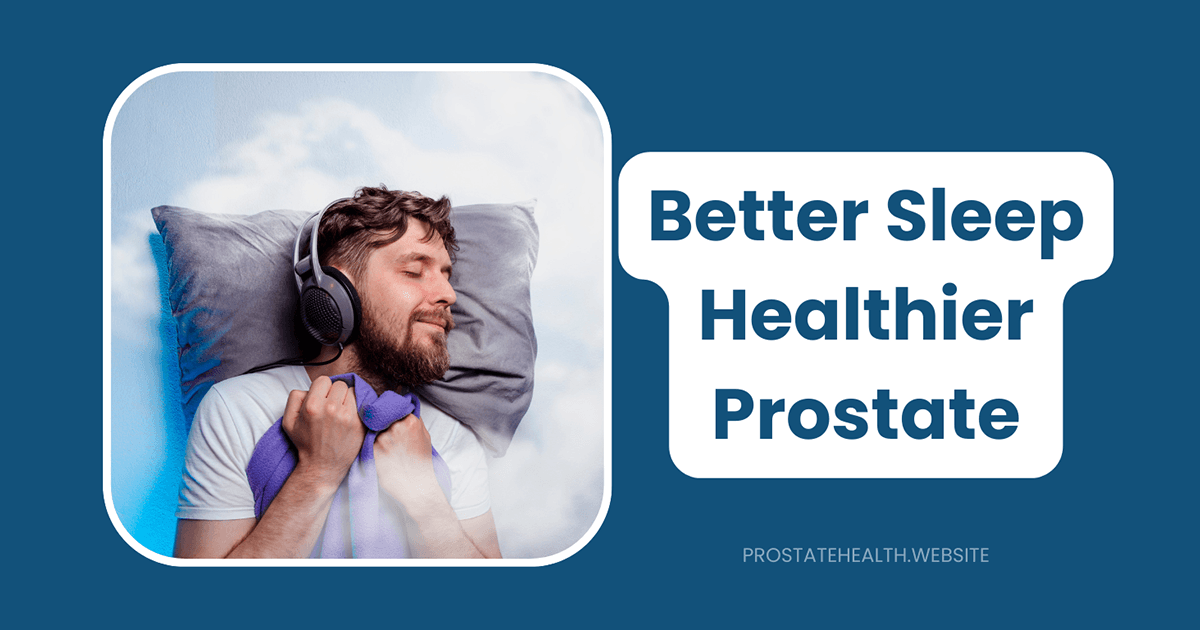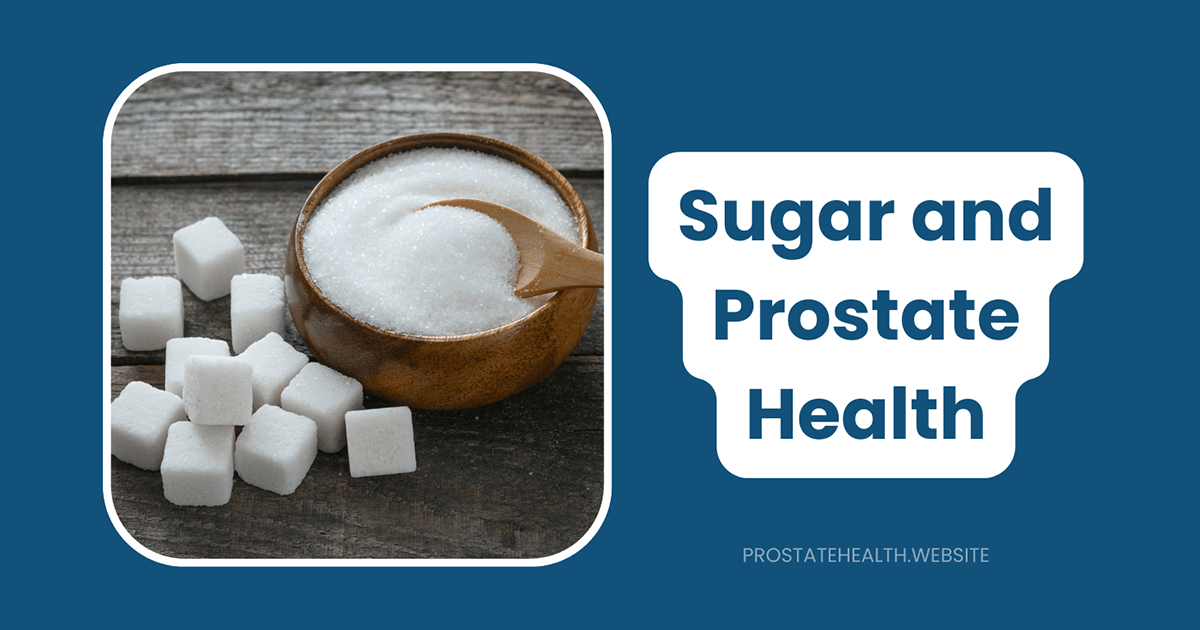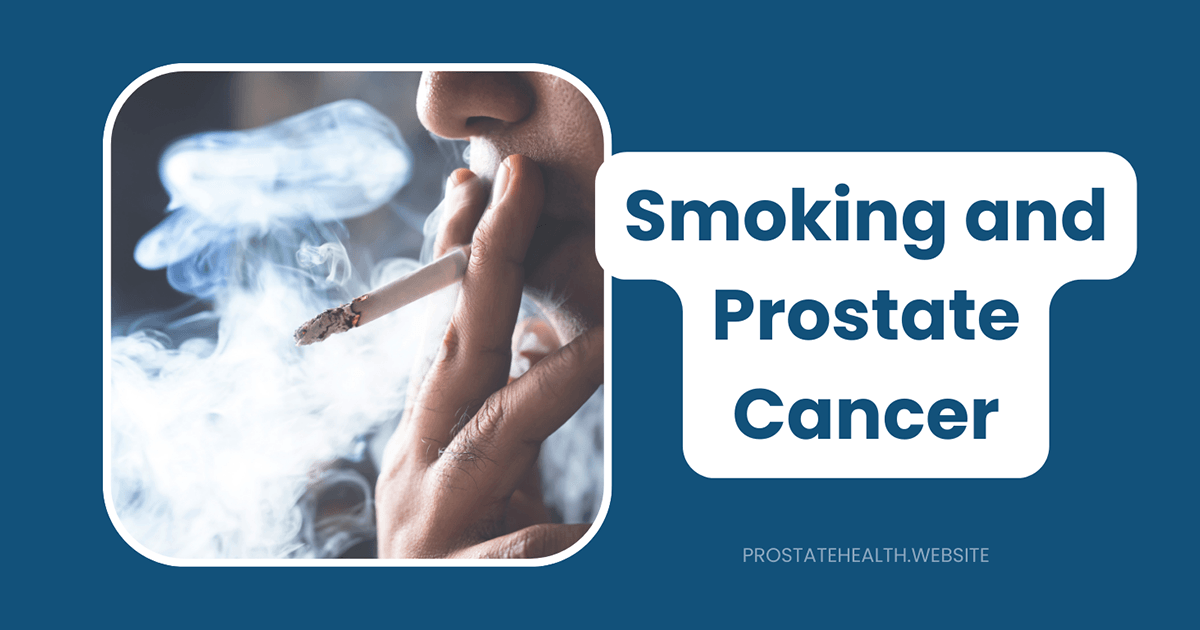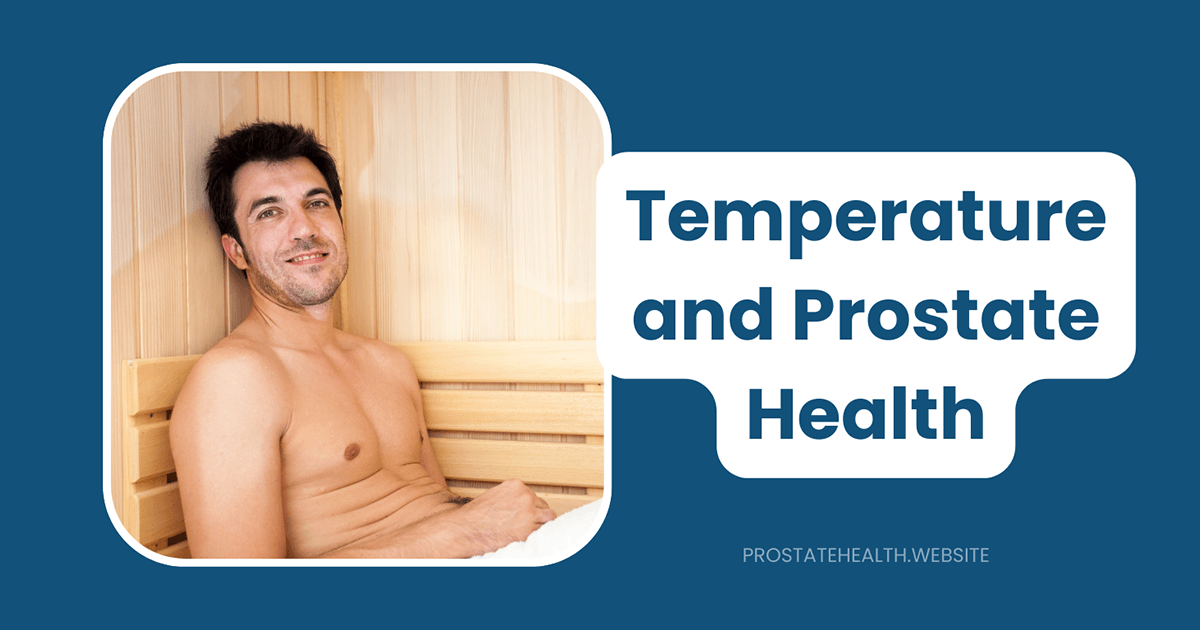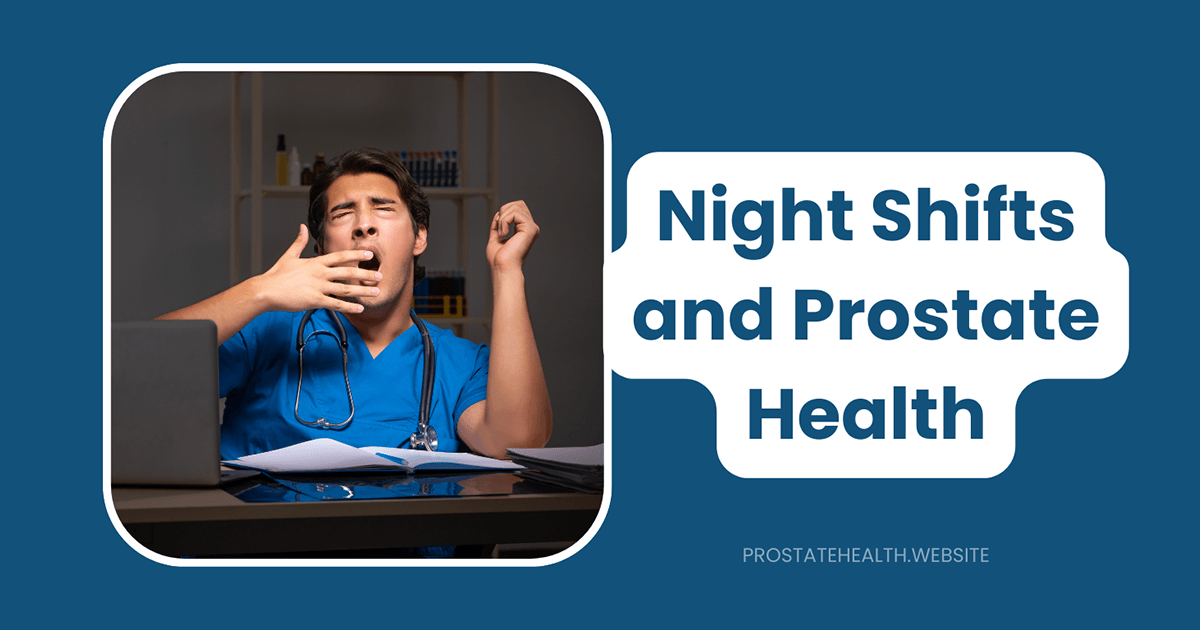Stress Management Techniques That Support Prostate Health
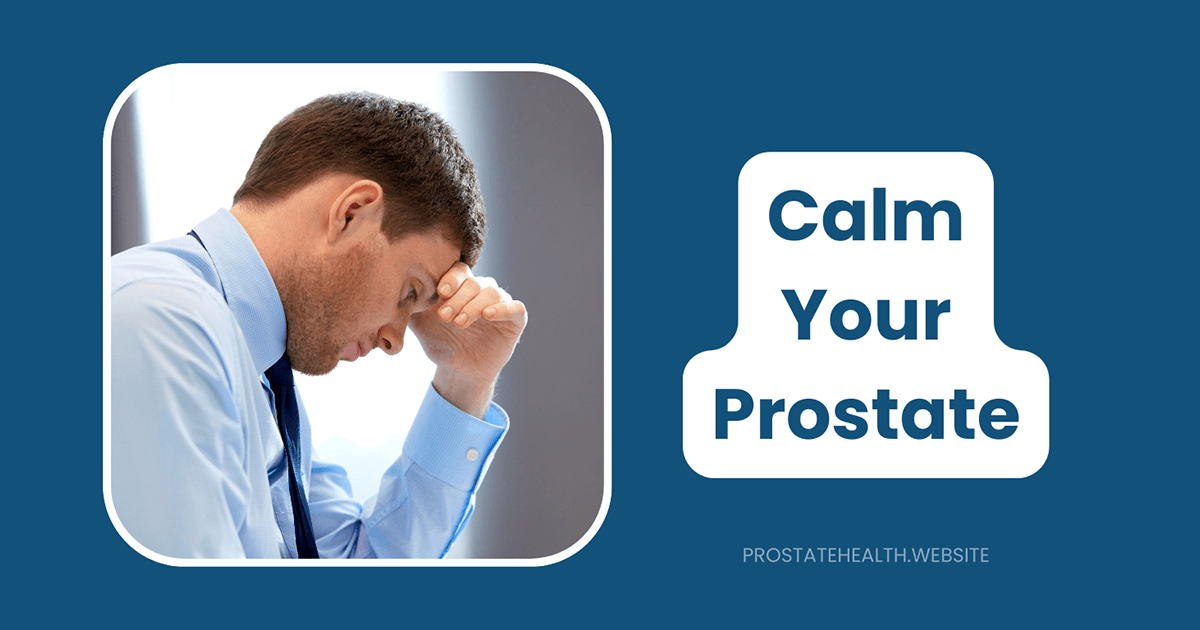
In our fast-paced world, stress has become an unwelcome companion for many men. While we often discuss how stress affects mental health, heart health, and overall wellbeing, its impact on prostate health remains largely overlooked. Yet research increasingly shows that chronic stress can significantly influence prostate conditions, from benign prostatic hyperplasia (BPH) to prostatitis and potentially even prostate cancer.
Throughout my years of advocating for men’s health, I’ve seen how effective stress management can transform not just quality of life but also specific health outcomes. The good news? You don’t need to completely overhaul your life to begin managing stress in ways that benefit your prostate. Small, consistent changes can make a meaningful difference.
The Stress-Prostate Connection: Understanding the Science
Before diving into specific techniques, it’s important to understand why stress management matters for prostate health. The connection isn’t just theoretical—it’s backed by science.
How Stress Affects Your Prostate
When you experience stress, your body releases cortisol, often called the “stress hormone.” While this response is helpful in true fight-or-flight situations, chronic elevation of cortisol can wreak havoc on your body, including your prostate:
- Inflammation: Chronic stress triggers systemic inflammation, which can affect the prostate gland. A study published in the Journal of Urology found that inflammatory markers were significantly higher in men with prostate conditions who reported high stress levels.
- Pelvic Floor Tension: Stress often causes unconscious tensing of the pelvic floor muscles, which can irritate the prostate and surrounding nerves, leading to urinary symptoms and discomfort.
- Immune System Suppression: Prolonged stress weakens the immune system, potentially increasing vulnerability to infections, including those affecting the prostate.
- Hormonal Imbalance: Stress can disrupt the balance of sex hormones, including testosterone, which plays a role in prostate health.
- Urinary Symptoms: A 2005 Harvard study found that men with high stress levels reported more difficulty emptying their bladders—a common symptom of prostate issues—compared to those with lower stress.
According to research published in Psychoneuroendocrinology, men who experienced significant life stressors showed elevated PSA (prostate-specific antigen) levels, a marker often used to screen for prostate issues.
Mindfulness and Meditation: Calming the Prostate Storm
Mindfulness and meditation practices have moved from the fringes to the mainstream of healthcare, with good reason. These techniques can significantly reduce stress hormones and inflammation—both beneficial for prostate health.
Mindfulness Meditation
Mindfulness involves paying attention to the present moment without judgment. This simple but powerful practice has been shown to reduce cortisol levels and decrease inflammation throughout the body.
How to practice basic mindfulness meditation:
- Find a quiet, comfortable place to sit
- Set a timer for 5-10 minutes (you can gradually increase this time)
- Close your eyes or maintain a soft gaze
- Focus on your breath—the sensation of air moving in and out
- When your mind wanders (and it will), gently bring your attention back to your breath
- Continue this process until your timer sounds
A study published in the Journal of Behavioral Medicine found that men with chronic prostatitis/chronic pelvic pain syndrome who practiced mindfulness meditation for eight weeks experienced significant reductions in pain and urinary symptoms.
Guided Imagery for Prostate Health
Guided imagery involves using your imagination to create soothing mental images that promote relaxation and healing.
Try this simple prostate-focused guided imagery:
- Sit or lie down comfortably and close your eyes
- Take several deep breaths
- Imagine a healing, warm light in your lower abdomen
- Visualize this light surrounding your prostate, bringing relaxation and healing
- Imagine any tension or inflammation melting away
- Continue for 5-10 minutes
Research from the International Journal of Behavioral Medicine suggests that regular guided imagery can reduce inflammatory markers and improve symptoms in men with chronic pelvic pain.
Body Scan Meditation
This practice involves systematically focusing on each part of your body, noticing sensations without trying to change them. It’s particularly helpful for releasing unconscious tension in the pelvic area.
How to perform a body scan:
- Lie down in a comfortable position
- Begin by bringing awareness to your feet
- Slowly move your attention upward through your body
- When you reach your pelvic area, spend extra time noticing any tension
- Consciously relax the muscles in this area
- Continue the scan up through the rest of your body
Pro tip: Many men find it helpful to use a guided body scan recording when first learning this technique. There are many free options available online or through meditation apps.
Physical Techniques: Moving Toward Better Prostate Health
Physical activity is one of the most effective stress management tools available, with specific benefits for prostate health.
Aerobic Exercise: The Prostate’s Best Friend
Regular aerobic exercise reduces stress hormones while increasing endorphins—natural mood elevators. The American Urological Association recommends 1-3 hours of exercise weekly for prostate health.
Best aerobic exercises for prostate health:
- Walking: Even a 30-minute daily walk can significantly reduce stress levels
- Swimming: Provides full-body exercise without joint stress
- Cycling: Use a prostate-friendly saddle to avoid pressure on the perineum
- Elliptical training: Offers aerobic benefits without impact
A study published in the European Urology Journal found that men who exercised regularly had a 25% lower risk of developing BPH compared to sedentary men.
Pelvic Floor Relaxation Exercises
While Kegel exercises (pelvic floor contractions) are often recommended for urinary control, men with prostate issues related to stress may benefit more from learning to relax these muscles.
Pelvic floor drop technique:
- Sit comfortably with good posture
- Take a deep breath in
- As you exhale, imagine your pelvic floor muscles softening and dropping downward
- Feel a sense of opening and releasing in the pelvic area
- Repeat 5-10 times, several times daily
According to research in the Journal of Urology, men who practiced pelvic floor relaxation techniques experienced significant improvement in prostatitis symptoms compared to those who didn’t.
Yoga Poses for Prostate Health
Certain yoga poses can help release tension in the pelvic region while promoting overall relaxation.
Beneficial yoga poses:
- Happy Baby Pose: Lies on back, holding feet with knees drawn toward armpits
- Child’s Pose: Kneeling with torso folded forward, arms extended
- Supine Butterfly: Lies on back with soles of feet together, knees falling outward
- Reclining Pigeon: Lies on back with ankle crossed over opposite knee
A study published in International Journal of Yoga Therapy found that men who practiced yoga twice weekly for 12 weeks reported reduced stress and improved urinary symptoms associated with BPH.
Breathing Techniques: The Fastest Way to Calm Your Nervous System
Conscious breathing is perhaps the most accessible stress management tool, requiring no special equipment or significant time commitment.
Diaphragmatic Breathing
Also called belly breathing, this technique activates the parasympathetic nervous system—your body’s “rest and digest” mode—which counteracts the stress response.
How to practice diaphragmatic breathing:
- Sit or lie in a comfortable position
- Place one hand on your chest and the other on your abdomen
- Breathe in slowly through your nose, feeling your abdomen expand (not your chest)
- Exhale slowly through slightly pursed lips
- Practice for 5 minutes, 2-3 times daily
Research published in the Journal of Alternative and Complementary Medicine found that regular diaphragmatic breathing reduced cortisol levels and improved symptoms in men with chronic pelvic pain.
4-7-8 Breathing
Developed by Dr. Andrew Weil, this technique acts as a natural tranquilizer for the nervous system.
How to practice 4-7-8 breathing:
- Sit with your back straight
- Place the tip of your tongue against the ridge behind your upper front teeth
- Exhale completely through your mouth, making a whoosh sound
- Close your mouth and inhale quietly through your nose for a count of 4
- Hold your breath for a count of 7
- Exhale completely through your mouth for a count of 8
- Repeat the cycle 3-4 times
This technique is particularly helpful during acute stress or before bedtime to promote better sleep—which itself is important for prostate health.
Cognitive Approaches: Changing How You Think About Stress
How you perceive and respond to stressors can significantly impact their effect on your body, including your prostate.
Cognitive Behavioral Stress Management (CBSM)
CBSM combines cognitive restructuring (changing thought patterns) with relaxation techniques to reduce stress.
Key components of CBSM:
- Identifying stress triggers: Becoming aware of what specifically causes your stress
- Challenging negative thoughts: Questioning catastrophic thinking and replacing it with more balanced perspectives
- Problem-solving: Developing practical approaches to manageable stressors
- Relaxation training: Incorporating techniques like progressive muscle relaxation
A study published in Biological Psychiatry found that men with prostate cancer who participated in a 10-week CBSM program showed significant reductions in cortisol levels and inflammatory markers.
Journaling for Stress Release
Writing about stressful experiences can help process emotions and reduce their physical impact.
Stress-release journaling technique:
- Set aside 15-20 minutes in a quiet place
- Write continuously about what’s causing you stress
- Don’t worry about grammar or spelling—just express your thoughts and feelings
- Include how the stress affects you physically (including any prostate symptoms)
- End by noting one thing you can do to address or cope with the stressor
Research from the Annals of Behavioral Medicine suggests that expressive writing can reduce stress-related symptoms and improve quality of life in men with chronic health conditions.
Lifestyle Approaches: Creating a Foundation for Stress Resilience
Certain lifestyle factors create a foundation that helps your body better manage stress and support prostate health.
Sleep Optimization
Poor sleep and stress create a vicious cycle that can worsen prostate symptoms. Prioritizing good sleep hygiene can break this cycle.
Sleep strategies for prostate health:
- Maintain a consistent sleep schedule
- Create a relaxing bedtime routine
- Keep your bedroom cool, dark, and quiet
- Limit fluid intake 2-3 hours before bedtime (particularly helpful for men with nocturia)
- Avoid screens 1 hour before sleep
A study in the Journal of Urology found that men with poor sleep quality were more likely to report severe lower urinary tract symptoms associated with prostate issues.
Anti-Inflammatory Diet
What you eat can either increase or decrease inflammation, affecting both stress levels and prostate health.
Prostate-friendly, stress-reducing foods:
- Fatty fish: Rich in omega-3 fatty acids that combat inflammation
- Berries: Contain antioxidants that fight oxidative stress
- Green tea: Contains L-theanine, which promotes relaxation
- Dark chocolate: In moderation, can reduce stress hormones
- Nuts and seeds: Provide magnesium, which helps regulate the stress response
Research published in The Prostate journal found that men who followed a Mediterranean diet pattern had lower levels of inflammation and reduced risk of prostate issues.
Social Connection
Strong social bonds act as buffers against stress and its physical effects.
Ways to enhance social connection:
- Schedule regular time with friends and family
- Join a men’s group or prostate health support group
- Volunteer for a cause you care about
- Take a class to learn something new while meeting others
- Consider therapy or counseling if you’re dealing with significant stress
According to research in Psychoneuroendocrinology, men with strong social support networks show lower cortisol levels and better health outcomes, including prostate health.
Creating Your Personalized Stress Management Plan for Prostate Health
The most effective approach to stress management is one that you’ll actually practice consistently. Here’s how to create a personalized plan:
1. Assess Your Current Stress Level
Before making changes, take stock of your current situation:
- How would you rate your stress level on a scale of 1-10?
- What are your main sources of stress?
- How is stress affecting your body, including any prostate symptoms?
- What stress management techniques (if any) are you currently using?
2. Start Small and Build Gradually
Choose 1-2 techniques from this article that appeal to you and seem doable. For example:
- 5 minutes of diaphragmatic breathing twice daily
- A 20-minute walk three times a week
- 10 minutes of mindfulness meditation before bed
3. Track Your Progress
Keep a simple journal noting:
- Which techniques you practiced
- How you felt before and after
- Any changes in prostate symptoms
- Overall stress levels
4. Adjust Based on Results
After 2-3 weeks, evaluate what’s working and what isn’t:
- Which techniques provide the most relief?
- Are there specific times of day when stress management is most beneficial?
- Have you noticed any changes in prostate symptoms?
5. Seek Professional Support When Needed
Consider working with professionals who can provide guidance:
- A urologist for prostate-specific concerns
- A mental health professional for stress management
- A physical therapist specializing in pelvic health
- A yoga instructor or meditation teacher for technique refinement
When to See a Doctor
While stress management can significantly improve prostate health, it’s important to know when to seek medical attention:
- Difficulty urinating or weak urine stream
- Blood in urine or semen
- Pain in the lower back, hips, or pelvic area
- Pain during urination or ejaculation
- Frequent urination, especially at night
- Sudden inability to urinate (seek emergency care)
These symptoms warrant evaluation by a healthcare provider, even if you believe they’re stress-related.
Conclusion: A Calmer Mind for a Healthier Prostate
The connection between stress and prostate health is clear, but this knowledge should empower rather than worry you. Every step you take to manage stress not only improves your overall wellbeing but also directly benefits your prostate health.
I’ve found that men who understand this connection are more motivated to incorporate stress management into their daily lives. Breaking the silence around both stress and prostate health is one of the most important things we can do for ourselves and the men in our lives.
Remember, stress management isn’t just about feeling better mentally—it’s a crucial component of a comprehensive approach to prostate health. Your prostate will thank you for every deep breath, mindful moment, and stress-reducing activity you incorporate into your life.
What stress management technique will you try today? Your journey to better prostate health might begin with something as simple as a deep breath.

